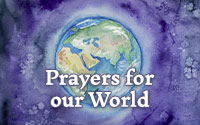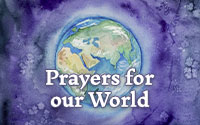Israel’s military edge in peril
Brigadier General Tal Kalman, chief of staff of the Israeli air force, warned that weapons flowing into the region could shift the balance of power away from Israel, hinting at growing Iranian hegemony without naming the country. He said the air force was the ‘dominant and central figure’ in the successful defence of Israel against the threats facing it, but warned it could change. ‘Advanced Western and Eastern weapons have entered the equation and have been received by the countries surrounding us,’ he said, referring to military equipment coming from Europe and the United States, as well as from China, including fighter planes, ballistic missiles, and advanced surface-to-air missiles. An arms race, along with instability, creates a great danger. Despite Russia’s nominal withdrawal from Syria, the more advanced S-400 air defence system, along with other pieces of Russian military equipment, remain in the war-torn country, according to Russian media.
Praying for the unreached
One in four people remain without reasonable access to the gospel. Although there may be a few believers or even a few churches, there are many people groups with no or few resources to evangelise their communities. What can we do to change this? Jesus told His disciples in Luke 10:1-3, ‘The harvest is plentiful, but the workers are few. Ask the Lord of the harvest, therefore, to send out workers into his harvest field.’ Jesus’ solution to the dilemma of the plentiful harvest with few workers was prayer. Prayer changes things! We can pray for the hearts among every least-reached people group to be ready to hear and respond to the Gospel; for the Lord of the Harvest to send labourers among these peoples;and for the Body of Christ to labour together in the unity of the Spirit to bring good news where it has never been heard before.
Global: 90% of executions carried out in just three countries
At least 1,634 people were executed in 25 countries in 2015: this is the highest number of executions recorded since 1989. Most took place in China, Iran, Pakistan, Saudi Arabia and the USA - in that order. The true extent of the use of the death penalty in China is unknown as this is a state secret; so the figure of 1,634 excludes the thousands of executions believed to have been carried out in that country. 90% of all recorded executions took place in just three countries: Iran, Pakistan and Saudi Arabia. The methods of killing used by governments are: beheading, hanging, lethal injection and shooting. In many countries where people were executed, the proceedings did not meet international fair trial standards: in some cases ‘confessions’ were extracted through torture in Bahrain, China, Iran, Iraq, North Korea and Saudi Arabia. Amnesty International could not confirm if executions had taken place in Syria.
Saudi Arabia denies use of torture
Saudi Arabia has claimed to the UN Human Rights Council that it ‘fights torture’ and guarantees fair trials - despite the planned execution of three juveniles who were tortured into ‘confessions’ after being arrested for attending protests. In remarks made to the Council, which met in Geneva for its final session, the country's minister of culture and information Bandar al-Ali claimed his government respects human rights and ‘fights torture in all its physical and moral manifestations’. ‘Saudi Arabia was one of the very first countries which promoted human rights’, he asserted.











